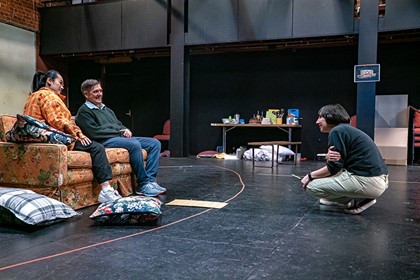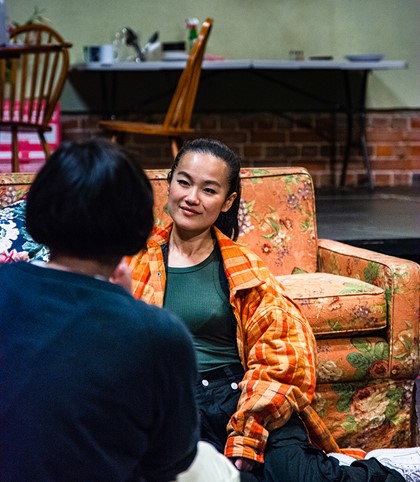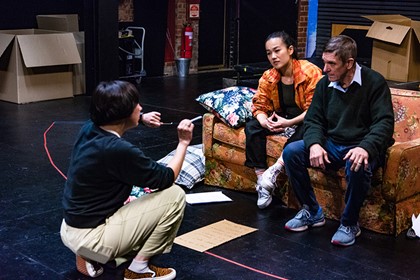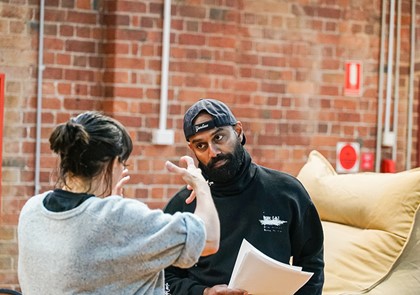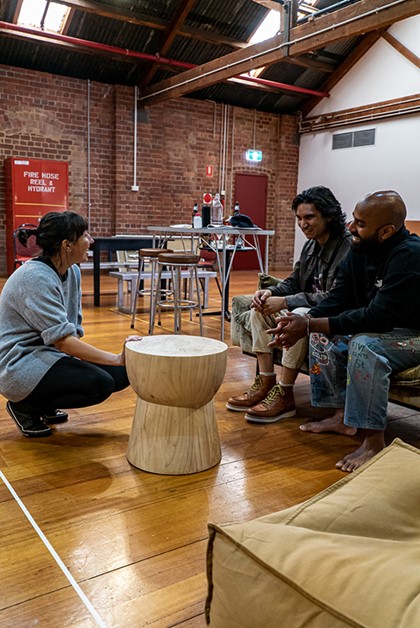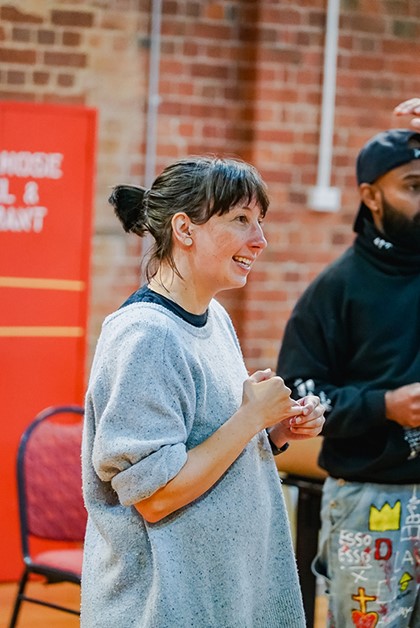How do you make a career as an artist?
Bridget Balodis reflects on her time as Director in Residence and shares some key reflective questions artists can ask themselves when building a career.
Posted Apr 07, 2023
I’ve just finished three years as Director in Residence at the Malthouse and as I end my time and return to freelancing, I am looking back at the ways my career has evolved and developed over that time. A role like this one is rare in an artist’s career and when I applied for it, beyond experience and a salary, it was hard for me to quantify exactly why it would be so career bolstering. In trying to reflect on the career-value of being Director in Residence I feel that I’m also answering a question I get asked by artists I’m mentoring:
How do you build a career as an artist? Or, how do you survive long term in the arts?
Investment of trust from others
One of the greatest benefits of the Director in Residence role was the relationships that it began for me; with arts leaders, performers, writers, and designers. I think relationships matter the most in building a career. And you don’t need that many. Obviously the wider your network, the more work is likely to come toward you, but not everyone is able to network fearlessly (it’s certainly not a natural skill of mine), and a few strong relationships are better than many superficial ones.
Relationships are where your credibility resides, almost as much as the work itself. You need senior practitioners and peers that can vouch for you, speak to your ability and professionalism. That is where opportunities arise from.
I came into this role through a combination of existing relationships and recently successful productions. I was given some great advice early on in the role by Marline Zaibak; the casting manager at Malthouse Theatre. I was putting together a creative team and she put it to me that while working with my usual collaborators was a creative asset, using the credibility of Malthouse would actually help me build new relationships with more experienced and senior artists that might not otherwise know me. And as such I’m leaving the role with relationships with important arts makers, production personnel, and the trust of an institution.
Importantly this role also taught me humility in the face of the experience of others, something that, if you can read it right, also builds trust and strengthens relationships. I came in feeling career ready, and up to the mark and I came to work with people with decades more experience than me. I had to acknowledge that I (we all) have more to learn all the time.
-
- What are you still learning and who can teach you?
- Where are your opportunities to create new relationships? What opportunities already exists? What’s missing and so what do you need to create?
- What are you still learning and who can teach you?
Money
I think we downplay the role of money in making arts careers. There are many Australian directors whose career trajectories have been rapid, and I think all too often we dismiss the importance, and privilege, of wealth when some of those directors seem to ‘appear’ on the scene. Money expedites career development, and this isn’t so much about having money to put into your shows, but about not having to waste time and energy working several casual jobs to pay your rent and bills. I spent the beginning of my career slinging tickets in the box office more than I spent it directing. A role like this one was so valuable because it plucked me out of the freelance stress of surviving and actually allowed me to focus on art and my career for a concentrated period of time.
Money matters and it has helped me, but how it comes to you differs artist to artist. The speed of your trajectory will likely be slower if you’re going by government support, building credibility tiny independent show by tiny independent show, but speed is not the marker of success.
- It’s important for emerging freelancers to think about where the survival money is coming from.
- What additional support is available? (Do your research)
- Benchmark your fees: Ask your peers and senior artists what you’re worth.
Experience and Diversification
Money buys you time to work, and time to work gives you time to gain experience in your field. The most extraordinary part of this role is the breadth of experience that I gained. I came into the role as a freelance director working in the independent sector and I’m leaving having directed a show in the Merlyn, two shows in the Beckett, and assistant directed on a large-scale immersive work. I have facilitated script workshops, been a part of commissioning new work, presented to donors, delivered workshops and administrated. And, starting in 2020, I also had to adapt my craft during lockdowns. I directed two online works and reflected on what theatre is (pretending along with everyone else that we could make it on a computer).
Part of gaining experience is diversifying your practice and trying to build flexibility.
That has been one of the most valuable parts of this role for me; it was inherently mobile and flexible. I was able to step out between Stay Woke and K-Box to direct Fast Food at Red Stitch, I was able to take leave and teach at VCA, I was able to increase or decrease my hours as needed.
It’s so easy starting out as a director to imagine that your income is going to be primarily from directing, but it is probably more like 40% of my annual income. And investing as much energy and time into the other parts of my craft was a huge factor in this role and in considering the sustainability of my practice overall.
- What are your other skills?
- Where can you develop skills that will make money? Train if you have to. And ask for the experience or work you need.
The Work Itself
Your work itself is obviously important, the quality of your product and also understanding the relationship between commercial pressure, art, commentary, and audiences. There’s a need for equilibrium there, or a choice at least about how you’re going to weigh the scales. Naively, as I started my career I really believed that quietly making excellent art was going to get me to a survivable place financially, and as I come toward having a more established career I can see that there are constant choices to do with art, money, life-balance and learning opportunities.
I think it's useful for emerging artists to be really honest with themselves about the commercial reach and appeal of their work – and if that is a priority. When Rae Perks and I made MORAL PANIC in 2018 I was quite sure that it would change the way the world thought about queerness and gender. I am immensely proud of that work artistically speaking, and I am also proud of the resonance it had with queer audiences, but I had to come to the difficult realisation that to a certain extent that was what the work was for; it was about giving voice, about resonance. And despite how important it felt and feels, it was actually quite experimental and the people it most affected were people who already agreed with us and who like experimental theatre. I would have had more ease in presenting that work if I’d been comfortable with that idea to begin with.
Being inside a role like this has not only been an immense privilege and an immense learning, but having the concentrated benefits of these three years has given me a way of reflecting on what actually makes my career work, how important each aspect is, and that balancing them all is where sustainability lies.
